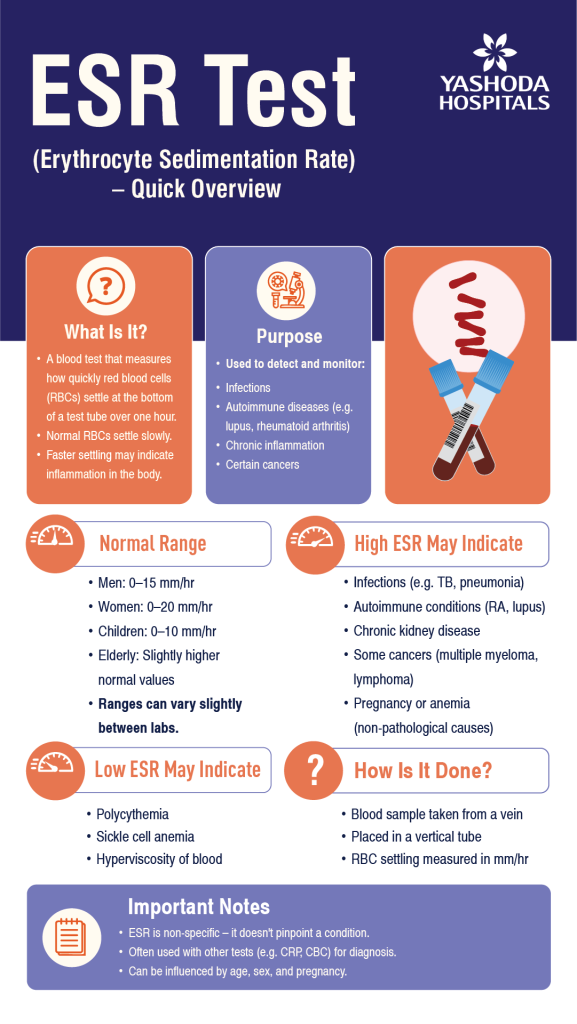What is an ESR test?
If the doctor suspects high levels of inflammation in the body, they may advise a blood test called an ESR (erythrocyte sedimentation rate) test. An ESR is a test performed in a blood sample that quantifies how fast erythrocytes, i.e., RBC (red cells), settle at the bottom of a test tube.
An ESR test helps you diagnose not one particular condition. Instead, it will help your healthcare practitioner determine if you are suffering from any inflammation and what further testing may be required. The ESR test is also used to keep track of the inflammatory diseases you already have.
Side effects of ESR test
There are not many side effects of having an ESR test. You might feel slight pain or bruising at the spot where the needle was inserted, but most symptoms go away quickly.
What is an ESR test used for?
An ESR blood test is used if you have signs of inflammation or infection. ESR tests can help diagnose the following conditions:
- Inflammatory Bowel Disease (IBD)
- Rheumatoid Arthritis
- Lupus
- Temporal Arteritis
- Systemic Vasculitis
ESR tests can also help doctors see how well treatment for inflammation or infection works.
Understanding the test results of ESR test
The reference range of ESR in males is ≤15 mm/hr, and in women, it is ≤ 20 mm/hr. The normal reference range for ESR values varies by laboratory.
There are multiple conditions that may result in high or low ESR levels, such as
An increased ESR rate may be due to some infections, including:
- Arthritis
- Systemic Vasculitis
- Inflammatory bowel disease
- Kidney diseases
- Infection
- Autoimmune diseases
- Heart diseases
- Certain cancers
Lower than normal levels occur with:
- Blood disorders (Polycythemia, Sickle cell disease (SCD), Leukocytosis)
- Heart failure
- Certain kidney and liver problems
An ESR test alone cannot diagnose inflammatory conditions. Your healthcare provider will make a diagnosis based on the results of your ESR test, as well as your medical history, symptoms, and other test results.





 Appointment
Appointment WhatsApp
WhatsApp Call
Call More
More